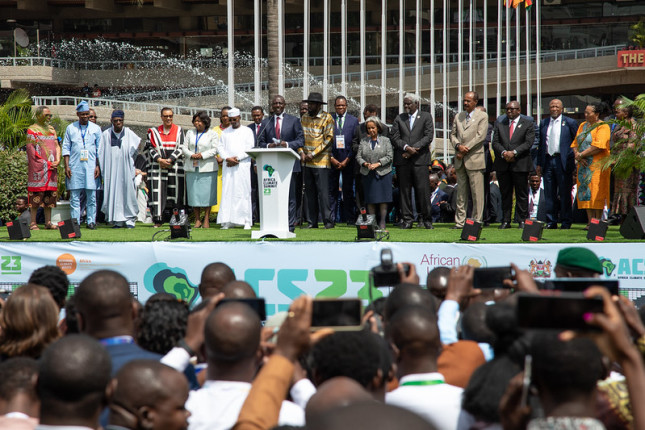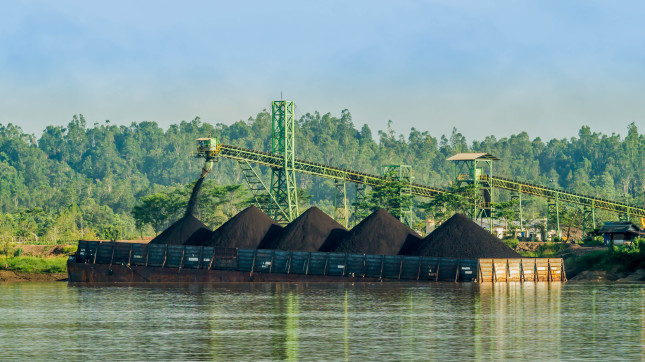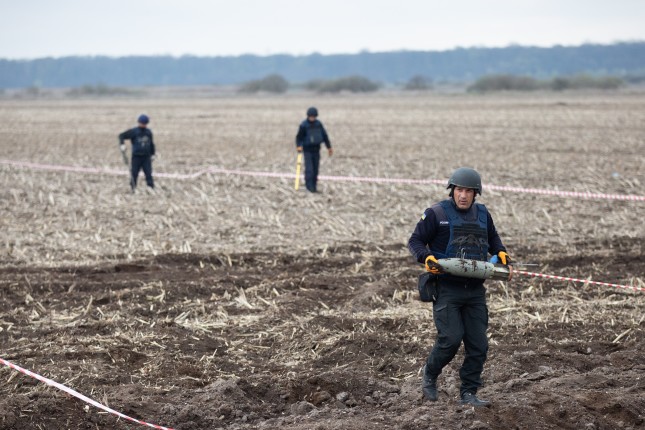-
Chinese Rail Export’s Environmental Dilemma: Economic Gains or Green?
›China Environment Forum // Guest Contributor // Vulnerable Deltas // October 19, 2023 // By Keren ZhuMany developing countries today face the dual challenges of development and decarbonization, racing against climate change that makes the latter increasingly urgent. This dilemma brings China’s railway investments in Africa under the spotlight. Can stakeholders of these megaprojects achieve the goal of boosting host countries’ economies while mitigating the socio-environmental risks of these ventures?
-
Africa’s First Climate Summit: From Victim to Leader?
›
The UN Environment Programme has described Africa as the most vulnerable region in the world to climate change. Despite only being responsible for 3% of global emissions, the continent has been battered by extreme weather events, including droughts, cyclones, wildfires, and sandstorms. One in three people across Africa faces water scarcity. The continent’s agricultural sector, which represents a significant share of African countries’ GDP and employment, is highly exposed to climate change.
-
ECSP Weekly Watch | September 25 – 29
›
A window into what we are reading at the Wilson Center’s Environmental Change and Security Program
Land Rights Prevail: Indigenous Groups Celebrate Major Win in Brazil
On September 21, Brazil’s Supreme Court upheld Indigenous peoples’ rights to their traditional lands. The judges rejected a proposed cutoff date, which stipulated that Indigenous communities could only hold land titles if they were physically present on the land on October 5, 1988: the date on which Brazil’s current Constitution was adopted.
-
China’s Belt and Road Initiative: Powering a Low or High Carbon Future?
›China Environment Forum // Guest Contributor // Vulnerable Deltas // September 28, 2023 // By Chuyu LiuChina’s Belt and Road Initiative (BRI) can significantly affect the country’s domestic and overseas energy transition and decarbonization agenda. Electricity projects in China’s BRI investments, contrary to popular impressions of being part of a monolithic “project of the century,” have divergent implications for the host country’s shift away from coal-based power plants.
-
Shifting the Climate Security Narrative: How the Department of Defense Can Lead
›
In 2021, US Defense Secretary Lloyd J. Austin III referred to climate change as an “existential threat”—a term traditionally reserved for nuclear weapons. Yet two years and several strategic plans later, tangible progress to mitigate and prepare for this threat remains elusive, especially on the international scale where the greatest impacts could be realized.
-
ECSP Weekly Watch | September 11 – 15
›
A window into what we are reading at the Wilson Center’s Environmental Change and Security Program
Treading Water: Why Were Libya’s Floods So Devastating?
This week’s devastating disasters in Morocco and Libya underscore the cascading effects of environmental shocks (and in the case of Libya, climate-related shocks), as well as the cross-sectoral response needed to comprehensively address the damage.
-
Ukraine’s Environment Is a Victim of Russian Geopolitics. (Again.)
›
Senior Western officials have received “sobering” reports on the counteroffensive in Ukraine. As both sides continue to rain artillery shells and missiles across the country, Ukrainian forces have struggled to make progress on the front lines in both the south and the east.
Meanwhile, a different but related struggle is occurring across the country. Ukraine’s environment is being poisoned by the by-products of this war; polluting the land, water, and air, and exposing humans, plants, and animals to high levels of toxins.
-
ECSP Weekly Watch | August 28 – September 1
›
A window into what we are reading at the Wilson Center’s Environmental Change and Security Program
Carbon Markets: One Sheikh’s Interest in Africa’s Resources
Why has a company in the United Arab Emirates (UAE) taken an interest in Africa’s forests? Sheikh Ahmed Dalmook Al Maktoum ‘s company, Blue Carbon, recently initiated deals with several countries (Liberia, Tanzania, Zambia, and Zimbabwe) that exchange management of African forests in these nations for carbon credits.
Showing posts from category energy.









